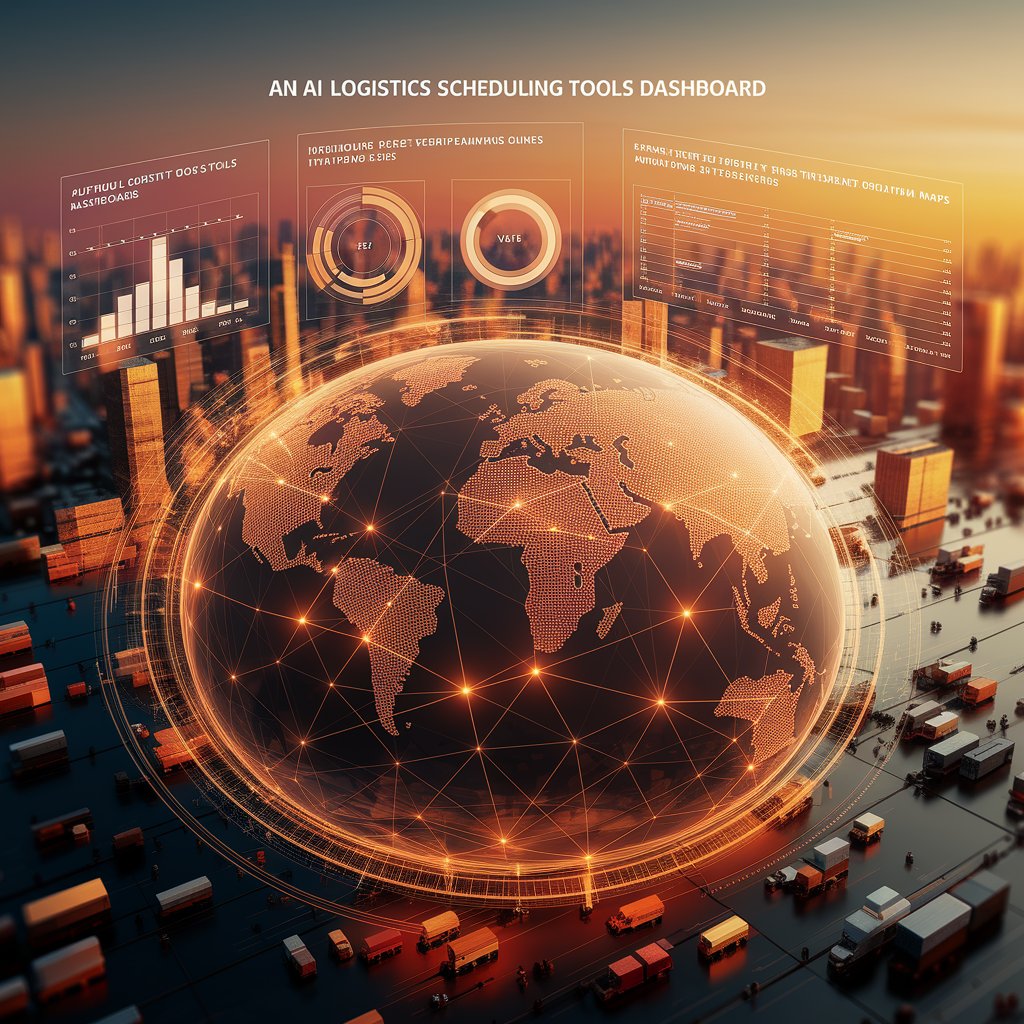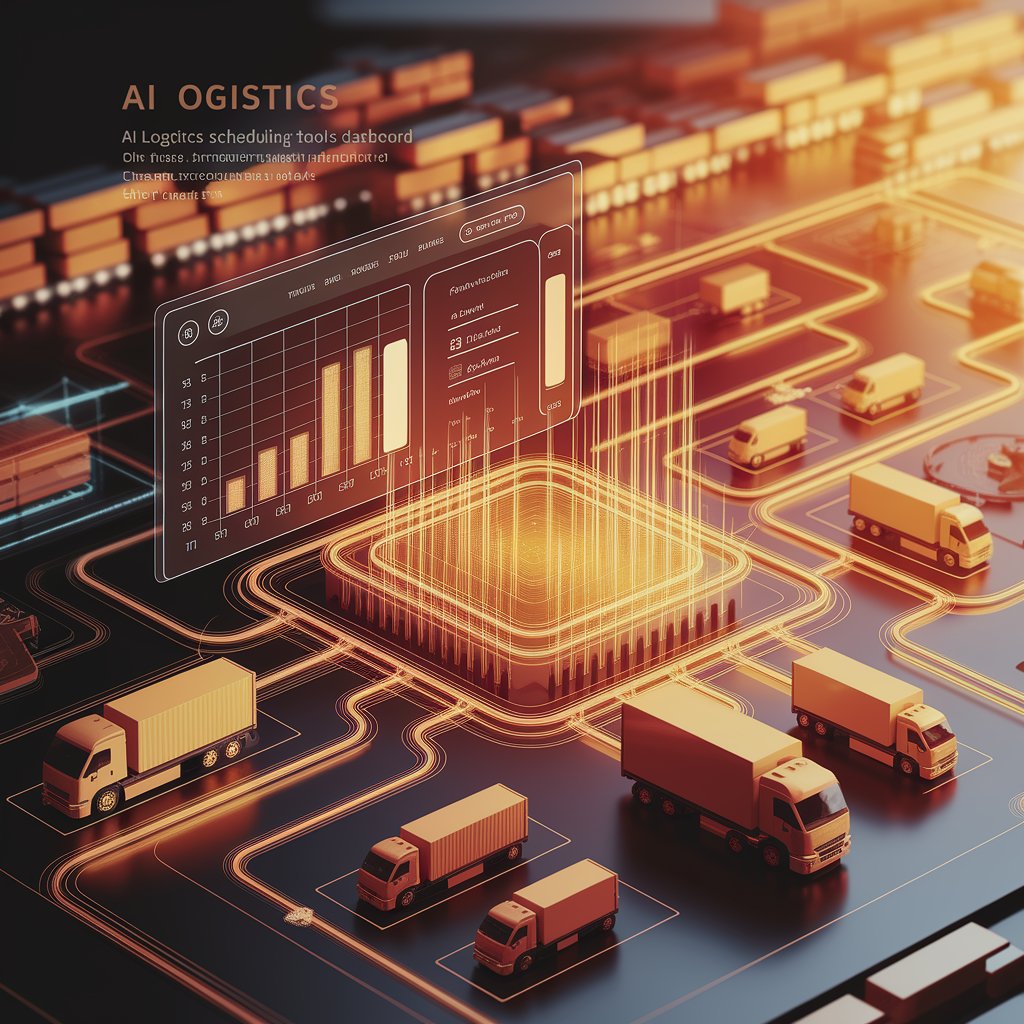AI Logistics Scheduling Tools: Smarter Planning for Modern Supply Chains

Introduction
That’s why businesses are turning to AI logistics scheduling tools. By using artificial intelligence, machine learning, and real-time data, these tools optimize schedules dynamically, improving accuracy, efficiency, and resilience across logistics operations.
What Are AI Logistics Scheduling Tools?
AI logistics scheduling tools are platforms that use artificial intelligence to automate and optimize logistics planning processes. Unlike manual or rule-based systems, AI learns from historical data, monitors real-time signals, and generates schedules that adapt instantly to disruptions.
They can be applied across different areas of logistics, including:
- Fleet scheduling – Assigning drivers and vehicles to routes.
- Warehouse scheduling – Optimizing staff shifts, dock appointments, and automation flows.
- Port & terminal scheduling – Coordinating cranes, yard operations, and vessel berths.
- Carrier scheduling – Managing available capacity and matching it to demand.

Key Features of AI Logistics Scheduling Tools
- Dynamic Scheduling – Adjusts plans in real time based on traffic, weather, or delays.
- Predictive Analytics – Anticipates demand and allocates resources accordingly.
- Scenario Modeling – Tests multiple scheduling options for efficiency.
- Multi-Modal Coordination – Synchronizes trucking, rail, air, and sea schedules.
- Integration with ERP/TMS/WMS – Ensures smooth data flow across platforms.
- Automated Alerts – Proactive notifications about potential scheduling conflicts.
Benefits of AI Logistics Scheduling Tools
- Efficiency Gains – Smarter resource allocation improves productivity.
- Cost Savings – Reduces fuel waste, labor inefficiencies, and detention charges.
- Resilience – Adapts instantly to disruptions like port congestion or labor shortages.
- Customer Satisfaction – Accurate ETAs and proactive communication.
- Scalability – Handles thousands of schedules without increasing staff.
- Sustainability – Optimized schedules reduce idle time and emissions.

Real-World Applications
- Freight Forwarders – Automate carrier booking and allocation.
- Carriers – Optimize fleet utilization and reduce deadhead miles.
- Ports & Terminals – Manage vessel arrivals, crane assignments, and yard planning.
- Warehouses – Schedule staff shifts and automate dock appointments.
- E-commerce & Retail – Improve last-mile delivery performance with smart scheduling.
Challenges in Implementing AI Scheduling
- Data Integration Issues – Legacy ERP and TMS platforms may not connect easily.
- High Upfront Costs – AI platforms and training require investment.
- Data Quality – Poor or incomplete data reduces scheduling accuracy.
- Change Resistance – Staff may hesitate to trust AI-generated schedules.
- Cybersecurity Risks – Sensitive operational data must be protected.

Best Practices for Success
- Start with High-Impact Areas – Pilot AI scheduling in fleets or warehouses first.
- Ensure Data Quality – Standardize GPS, IoT, and operational data inputs.
- Integrate Across Platforms – Connect AI tools with ERP, WMS, and TMS.
- Leverage Predictive Analytics – Use AI not only for current schedules but for forecasting.
- Train Teams Thoroughly – Build trust in AI-driven schedules.
- Track ROI Continuously – Measure savings in time, cost, and improved service.
The Future of AI Logistics Scheduling Tools
- Self-Learning Scheduling Engines – AI systems optimizing schedules autonomously.
- Digital Twins of Logistics Networks – Simulating multiple scheduling scenarios in real time.
- Blockchain Integration – Transparent and secure scheduling records.
- Edge AI – Real-time scheduling processed directly in trucks, warehouses, and ports.
- Sustainability-First Scheduling – AI balancing efficiency with carbon footprint reduction.
Conclusion
AI logistics scheduling tools are transforming logistics planning from manual, error-prone processes into intelligent, adaptive systems. By leveraging predictive analytics and real-time data, companies can cut costs, improve service, and strengthen resilience.
For freight forwarders, carriers, and global shippers, adopting AI logistics scheduling tools is not just about automation—it’s about building supply chains ready for the future.
